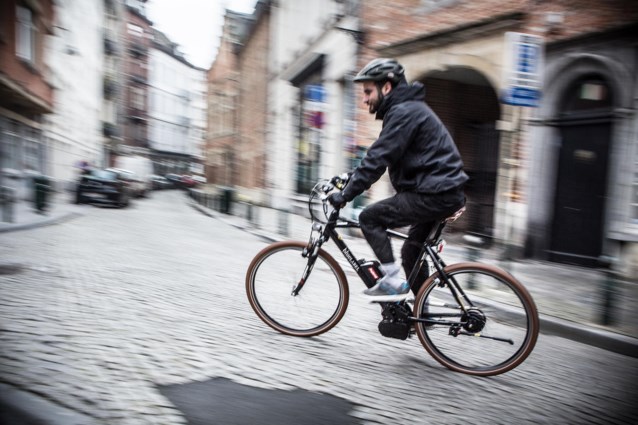City officials must move fast if they wish to seize the cycling boost brought on by the coronavirus pandemic to bring about permanent changes to urban mobility.
In a webinar held on World Cycling Day, bike advocates and urban mobility officials from across Europe agreed that the coronavirus pandemic offered a unique chance to rethink urban space and mobility.
Related News
- Business booms for Brussels bike shops as lockdown lifts
- Brussels' cyclists grow in numbers, study shows
- Saint-Gilles seeks cycling boost with free biking lessons
"Don't wait for permission — push for the temporary lanes, put the paint on the roads," Matthew Baldwin, cycling enthusiast and deputy chief of the EU Commission's Mobility and Transport Directorate-General, said.
Throughout the webinar, panellists said that the coronavirus pandemic had led to an unprecedented rise in cycling traffic and urged public officials to act quickly to capture the momentum before it died out.
"The coronavirus pandemic has shed a light on how crucial cycling is for providing safe, reliable and fast transportation," said Raluca Fiser, who moderated the discussion hosted by the European Cyclists Federation.
As lockdowns begin to lift across the EU, major capitals like Paris, Brussels or London have rapidly rolled out infrastructure which has been largely successful in drawing out increased cycling and pedestrian traffic.
Paris Deputy Mayor Christophe Najdovski, responsible for transports, said that the construction of 60 kilometres of new cycling lanes in the French capital had seen cycling traffic swell by a whopping 40% compared to before the lockdown.
Najdovski also said that a recent move to ban cars from Rue de Rivoli, a major artery running through the touristic Saint-Germain and Louvre areas had seen some 14,000 cyclists replace the street's usual traffic jams.
Rethink the budget
As more and more citizens returned to work, Lisbon's Deputy Mayor, Miguel Gaspar, told panellists that cities were key to ensure residents who are reluctant to take public transport embraced biking over their car.
"We need to show them the third option which is the bike," Gaspar said. "Cities should commit to funding of bikes, of cycle paths."
While funding was often a major roadblock in cities' urban planning strategies, Gaspar cited the example of Lisbon to show how cities could find ways to use tools and money already at their disposal.
"We are launching a €3 million program to support bike acquisition today, it's the same money that we would have spent in a parking lot for 300 cars."
"The faster way for cities to act is to find funds in their own budget to act now," as they wait for EU or national funding to set up more strategic and long-term solutions, he added.
In his concluding remarks, Baldwin said that sufficient funding from the EU and national governments remained essential for seizing the current momentum, citing the example of a 1970s biking boom in the US which he said ultimately died out, as falling oil prices and lack of biking infrastructure saw Americans flock back to their vehicles.
"We need to act now, Europe is opening up again — are we going to slide back to the old normal in terms of urban mobility?" he asked.
Gabriela Galindo
The Brussels Times

